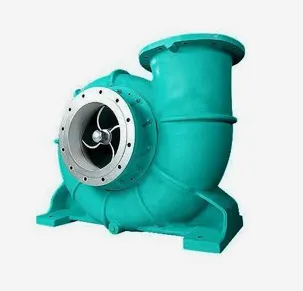English
- Afrikaans
- Albanian
- Amharic
- Arabic
- Armenian
- Azerbaijani
- Basque
- Belarusian
- Bengali
- Bosnian
- Bulgarian
- Catalan
- Cebuano
- Corsican
- Croatian
- Czech
- Danish
- Dutch
- English
- Esperanto
- Estonian
- Finnish
- French
- Frisian
- Galician
- Georgian
- German
- Greek
- Gujarati
- Haitian Creole
- hausa
- hawaiian
- Hebrew
- Hindi
- Miao
- Hungarian
- Icelandic
- igbo
- Indonesian
- irish
- Italian
- Japanese
- Javanese
- Kannada
- kazakh
- Khmer
- Rwandese
- Korean
- Kurdish
- Kyrgyz
- Lao
- Latin
- Latvian
- Lithuanian
- Luxembourgish
- Macedonian
- Malgashi
- Malay
- Malayalam
- Maltese
- Maori
- Marathi
- Mongolian
- Myanmar
- Nepali
- Norwegian
- Norwegian
- Occitan
- Pashto
- Persian
- Polish
- Portuguese
- Punjabi
- Romanian
- Russian
- Samoan
- Scottish Gaelic
- Serbian
- Sesotho
- Shona
- Sindhi
- Sinhala
- Slovak
- Slovenian
- Somali
- Spanish
- Sundanese
- Swahili
- Swedish
- Tagalog
- Tajik
- Tamil
- Tatar
- Telugu
- Thai
- Turkish
- Turkmen
- Ukrainian
- Urdu
- Uighur
- Uzbek
- Vietnamese
- Welsh
- Bantu
- Yiddish
- Yoruba
- Zulu
Telephone: +86 13120555503
Email: frank@cypump.com
Oct . 08, 2024 21:52 Back to list
Effective Strategies for Clearwater Well and Pump Maintenance and Improvement
Effective Solutions for Clearwater Well and Pump Management
In today’s increasingly eco-conscious world, the need for efficient water management systems is essential. Clearwater well and pump systems are vital infrastructures that ensure access to clean water for communities, irrigation, and various industrial processes. However, challenges such as contamination, fluctuating water levels, and aging infrastructure require effective solutions to optimize their operation and maintenance.
One of the foremost strategies for enhancing the efficiency of well and pump operations is regular maintenance. Scheduled inspections can prevent minor issues from escalating into major problems. Routine checks, including the assessment of pump efficiency, electrical connections, and well integrity, are crucial. Implementing a proactive maintenance schedule can increase the lifespan of equipment, reduce downtime, and ensure that water quality remains high.
Another effective solution is the utilization of advanced technology. Smart sensors and telemetry systems can monitor well conditions in real-time, providing valuable data on water levels, pressure, and flow rates. This information empowers operators to make informed decisions, allowing for timely interventions when anomalies arise. Additionally, integrating remote monitoring systems can enhance operational efficiency by allowing for off-site management and immediate response to issues as they occur.
effective solutions for clearwater well and pump ...

Water quality is a critical concern in well management. Implementing thorough testing protocols can help identify contaminants early, ensuring that the water supply remains safe for consumption. Utilization of filtration systems, ultraviolet (UV) disinfection, and reverse osmosis can significantly improve water quality. Regular testing for common pollutants like bacteria, nitrates, and heavy metals can guide maintenance and treatment processes, ensuring compliance with health regulations.
Sustainability is paramount in contemporary water management. Recharge and conservation practices, such as rainwater harvesting and aquifer recharge, can replenish groundwater sources and maintain supply levels. Public education campaigns can also encourage communities to adopt water-saving techniques, reducing overall demand on the well systems.
Finally, collaboration among stakeholders plays a vital role in the effective management of well and pump systems. Local governments, environmental organizations, and community members must work together to develop policies that balance water needs with conservation efforts. By fostering community engagement and awareness, these initiatives can lead to more sustainable practices and strengthened support for water management policies.
In conclusion, addressing the challenges associated with Clearwater well and pump systems involves a multi-faceted approach, incorporating regular maintenance, advanced technology, stringent water quality measures, sustainable practices, and stakeholder collaboration. By adopting these effective solutions, we can ensure a reliable supply of clean water for future generations while protecting our invaluable natural resources.
-
Horizontal Split Case Pump with GPT-4 Turbo | High Efficiency
NewsAug.01,2025
-
ISG Series Pipeline Pump - Chi Yuan Pumps | High Efficiency, Durable Design
NewsAug.01,2025
-
Advanced Flue Gas Desulfurization Pump with GPT-4 Turbo | Durable & Efficient
NewsJul.31,2025
-
ISG Series Vertical Pipeline Pump - Chi Yuan Pumps | Advanced Hydraulic Design&Durable Construction
NewsJul.31,2025
-
ISG Series Vertical Pipeline Pump - Chi Yuan Pumps | Energy Efficient & Low Noise
NewsJul.31,2025
-
pipeline pump - Chi Yuan Pumps Co., LTD.|High Efficiency&Low Noise
NewsJul.31,2025










